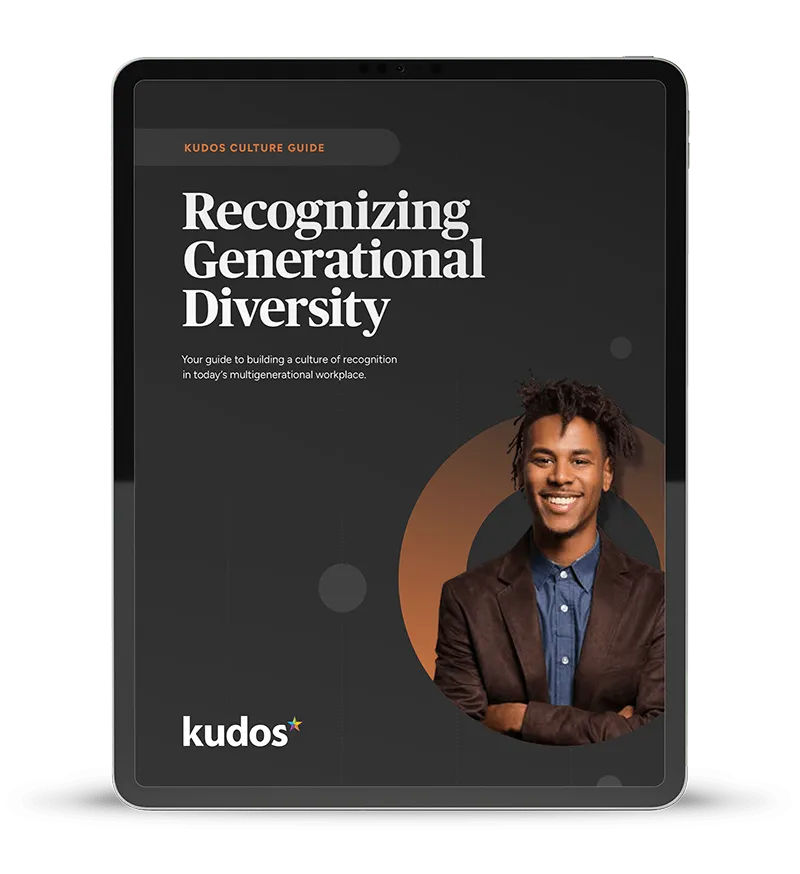In today’s ever-changing job market, a strong employer brand will set your organization apart. It will help you compete with companies that are offering the same roles, same benefits and even the same compensation as you. In times when people basically can choose to work at any company, anywhere in the world, your organization’s employer brand is what will ultimately attract top talent.
What’s important to understand is that employer branding shouldn’t just fall on the Human Resources department’s shoulders. Branding is a marketing concept and as such, the marketing department must actively collaborate with the HR team for the strategy to work.
What is employer branding?
Simply put, employer branding is the way your organization manages how current employees and potential candidates perceive you as an employer.
However, employer branding also influences how your clients see your brand. When a brand has a reputation of not treating its employees well, clients or consumers won’t want to do business with it. There are plenty benefits an organization will start to see with the development of a great employer brand. Let’s dive into it!
The benefits of a strong employer brand
- Attracting top talent: When job-hunting, people want to know more about prospective employers. A quick Google search never hurt anyone, right? Wrong. It can hurt your organization if the results aren’t encouraging. Now, what are prospective employees searching for? They’re looking for clues on what it’s really like to work for you. Glassdoor, Google reviews, your social media platforms – nothing is off limits. The idea is, you don’t want potential hires to disqualify your company before you even had a chance to speak to them. Top talent will bring many years of profitable earnings, so losing them before the conversation begins is possibly the worst nightmare of any talent acquisition team. Ultimately, a great employer brand will have the complete opposite effect. Before you even talk to candidates, you will already have an advantage. That’s what you want, and that’s what employer branding is all about.
- Strategic, Sustainable Recruitment: “I love when I hire someone, and they resign within months” – said no hiring manager ever! With a strong employer brand, your organization won’t only be ahead of the competition, but hiring managers will have an easier time finding candidates who are the right fit. A LinkedIn study shows that 72% of world-wide leaders agree that employer brand impacts the hiring process directly. Supposing your brand includes an honest and straight-forward mission, in the interview process you’ll see who is aligned with your organization and excited to join. The point of great employer branding isn’t to convince talent or increase the number of applicants, but to attract people who are aligned with your mission and company values. This combination will make the best possible impact in your organization.
- Improved Retention: Having a team full of people who are passionate about their work is priceless – and possible – with great employer branding. Investing in your employer brand will save you significant money in the long run. In fact, employee turnover costs can go down up to 28% just by investing in your employer brand. So, a straightforward job description, and having a team that is trained to explain your brand goes a long way.
- Brand Reputation: While employer branding focuses on how your employees and potential hires will see your organization, employer branding has one extra hidden benefit; how clients will see your brand. A recent report by Reputation X, shows that three out of four consumers trust an organization more if it has positive reviews. Adding credibility to your employer brand will make your organization attractive to top talent, plus it will boost satisfaction levels to your clients, as they’ll be proud to be partnering with such a great company.
Cultivate your employer brand
Now that we know the benefits of a great employer brand, it’s time to figure out who should oversee employer branding at your organization, HR or Marketing?
As the war for talent continues, employer branding has created the need for the two departments to collaborate more than ever before. In fact, a LinkedIn survey says HR professionals acknowledge that recruitment is becoming more like marketing.
So, who should oversee employer branding?
The answer is that it should be a team effort. Employer branding is about creating a culture of happy employees and eager prospects who dream of working for you. It’s about listening to, and measuring employee referrals, both formal, and informal. When someone is so happy to work at your organization, they will tell all their family and friends about your brand.
Employer branding needs a strong culture where employees are in the spotlight; their stories, their achievements, and their wellbeing. Adding a people-point-of-view to your employer branding will generate better candidates, contributing to better culture. Employer branding and culture go hand in hand.
But how can you take your employer brand from good to great?
How to build a great employer brand
- Focus on the human aspect: Potential hires want to know the people who work for your organization, their background, their personalities. In fact, LinkedIn shows that 52% of people will look at your website and social media channels as a first point of contact. Moreover, another study by Careerarc says that 68% of millennials go directly on employer’s social media to evaluate their employer’s brand. So, by developing a website with testimonials, videos or even a gallery of photos from social events or volunteer activities, you will be making a powerful statement. Also, sharing meaningful content that aligns with your mission and culture will give your clients a sense of satisfaction knowing they’re doing business with the right people.
- Work on your workplace culture: Mistakenly treating your culture as an expense could harm your reputation as an organization. Now, there’s different ways to work towards stronger culture. At Kudos, we believe in a recognition-first approach. Why? The data speaks for itself. According to a Glassdoor study, four in five employees showed higher level of motivation when they felt appreciated by their boss. Recognition should be meaningful, specific and timely to have the biggest impact. Prioritizing a culture where people feel engaged, supported and most importantly safe, will boost your employer brand as a desired place to work. A brand that values employees just as much as clients.
- It's all about the people: LinkedIn data shows that 94% of employees would stay at a company that offers a learning and development program. Furthermore, a PWC study shows that 86% of female millennials said employer policy on diversity was essential when choosing a place to work. Another study done by Monster, shows that diversity, equity and inclusion (DEI) in the workplace is important to 86% of workers, globally. So, Offering employees something that goes beyond their salary will give your brand long-term benefits and far-reaching word-of-mouth marketing. Encouraging a diverse and inclusive workplace doesn’t only increase innovation and creativity, but it also helps you build an employer brand that sees in different backgrounds a window full of opportunities.
- Living by your organization's core values: From the website to the job posting, employer branding is a combined effort that will need leadership to walk the talk. Remember, today most people are looking to work at a place where they can intertwine their goals and values. So, making sure you’re being authentic in your messaging will help you hire for culture-add, not culture-fit. At the same time, having your values be evident through your marketing will ignite a sense of belonging. Finally, purpose is essential. According to Deloitte, Millennials and Gen Zers are prepared to turn down senior positions that don’t align with their values. Accordingly, work with your HR team to craft behavioral questions to help you in the hiring process.
- Monitor reviews: Lastly, we all know that feedback is crucial in the workplace, and the same goes for you as the employer. When your organization actively responds to consumer reviews, you will know if your company is doing things right, and better understand your weaknesses and strengths so you can make improvements. A Glassdoor survey points out that replying to reviews can have a positive impact in your culture moving forward. So, don't be afraid to check your reviews - embrace what's working and fix what needs to be fixed!
Take aways
Building an employer brand is a long-term culture strategy that will pay big dividends. While the task may seem daunting, remember that you already have an employer brand – the key is to make sure people are experiencing your workplace the way you want them to, and the way that will drive business results in the future.

A newsletter with the best resources for HR professionals.



